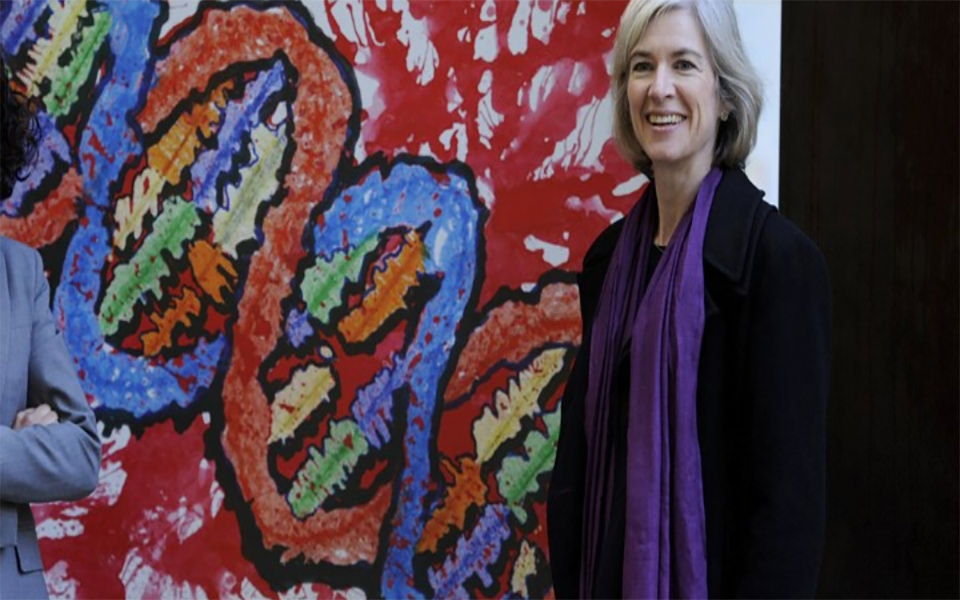How CRISPR Yanked Jennifer Doudna Out of the Ivory Tower
The pioneer biochemist feels a responsibility to weigh in on ethical debates about gene editing.
Jennifer Doudna remembers a moment when she realized how important CRIPSR—the gene-editing technique that she co-discovered—was going to be. It was in 2014, and a Silicon Valley entrepreneur had contacted Sam Sternberg, a biochemist who was then working in Doudna’s lab. Sternberg met with the entrepreneur in a Berkeley cafe, and she told him, with what he later described to Doudna as “a very bright look in her eye that was also a little scary,” that she wanted to start applying CRISPR to humans. She wanted to be the mother of the first baby whose genome had been edited with the technique. And she wanted to establish a business that would offer a menu of such edits to parents.
Nothing of the kind could currently happen in the U.S., where editing the genomes of human embryos is still verboten. But the entrepreneur apparently had connections that would allow her to offer such services in other countries. “That’s a true story,” Doudna told a crowd at the Aspen Ideas Festival, which is co-hosted by the Aspen Institute and The Atlantic. “That blew my mind. It was a heads-up that people were already thinking about this—that at some point, someone might announce that they had the first CRISPR baby.”
The possibility had always been there. Bacteria have been using CRISPR for billions of years to slice apart the genetic material of viruses that invade their cells. In 2012, Doudna and others showed how this system could be used to deliberately engineer the genomes of bacteria, cutting their DNA with exceptional precision. In quick succession, researchers found that they could do the same in mammalian cells, mice, plants, and—in early 2014—monkeys. “I had all of this at the back of my mind,” Doudna told me after her panel. But Sternberg’s story about his meeting “was the moment where I said I needed to get involved in this conversation. I’m not going to feel good about myself if I don’t talk about it publicly.”


